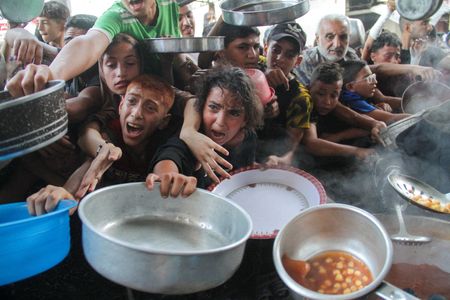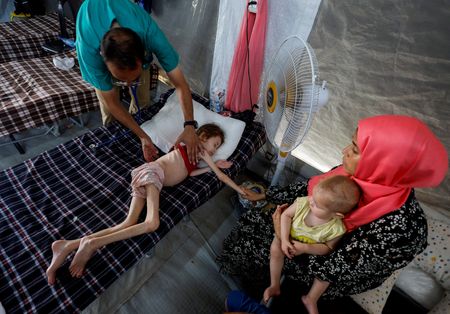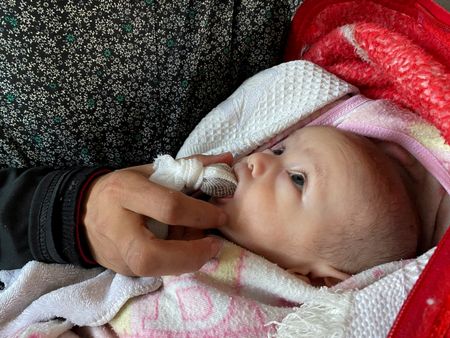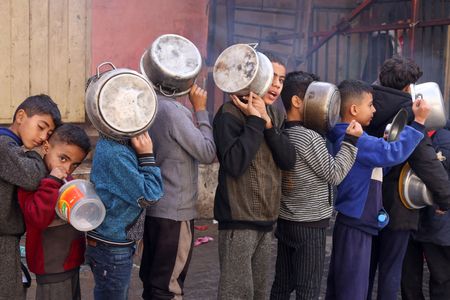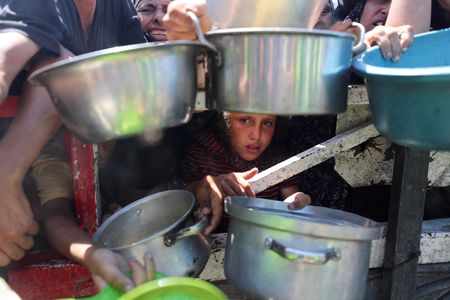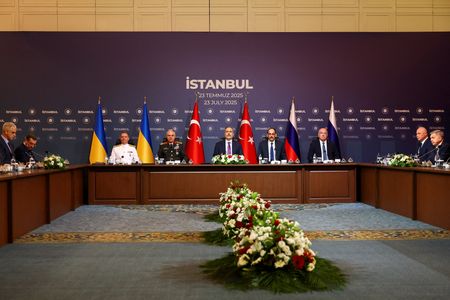By Christy Santhosh and Jennifer Rigby
(Reuters) -Gaza is suffering man-made mass starvation caused by a blockade on aid into the Palestinian enclave, World Health Organization chief Tedros Adhanom Ghebreyesus said on Wednesday.
He spoke following an appeal by more than 100 aid agencies warning of hunger in Gaza while tons of food, clean water and medical supplies sit untouched just outside the territory.
“I don’t know what you would call it other than mass starvation, and it’s man-made, and that’s very clear,” Tedros told a virtual press conference live-streamed from Geneva. “This is because of (the) blockade.”
Gaza’s food stocks have run out since Israel, at war with Palestinian militant group Hamas since October 2023, cut off all supplies to the territory in March and then lifted that blockade in May – but with restrictions that it says are needed to prevent aid from being diverted to militant groups.
As a result, international aid agencies say that only a trickle of what is needed is currently reaching people in Gaza.
Israel says it is committed to allowing in aid but must control it to prevent it from being diverted by militants. It says it has let enough food into Gaza during the war and blames Hamas for the suffering of Gaza’s 2.2 million people.
Ten more Palestinians died overnight from starvation, the Gaza health ministry said, bringing the total number of people who have starved to death to 111, most of them in recent weeks as a wave of hunger crashes on the Palestinian enclave.
The WHO said the deadly surge in malnutrition has caused the deaths of at least 21 children reported to the agency in 2025, but stressed those figures are likely the tip of the iceberg.
Centres for treating malnutrition are full without sufficient supplies for emergency feeding, the WHO added, as the hunger crisis has been compounded by the collapse of aid pipelines and restrictions on access.
Tedros also said the U.N. and its humanitarian partners were unable to deliver any food for nearly 80 days between March and May, and the resumption of deliveries was still insufficient.
The situation is dire, he and other WHO officials said, with around 10% of people screened experiencing either severe or moderate malnutrition, and up to 20% of pregnant women.
In July alone, 5,100 children have been admitted to malnutrition programmes, including 800 who were severely emaciated, said Rik Peeperkorn, WHO’s representative for the occupied Palestinian territories.
(Reporting by Christy Santhosh in Bengaluru and Jennifer Rigby in London; editing by Arun Koyyur and Mark Heinrich)

